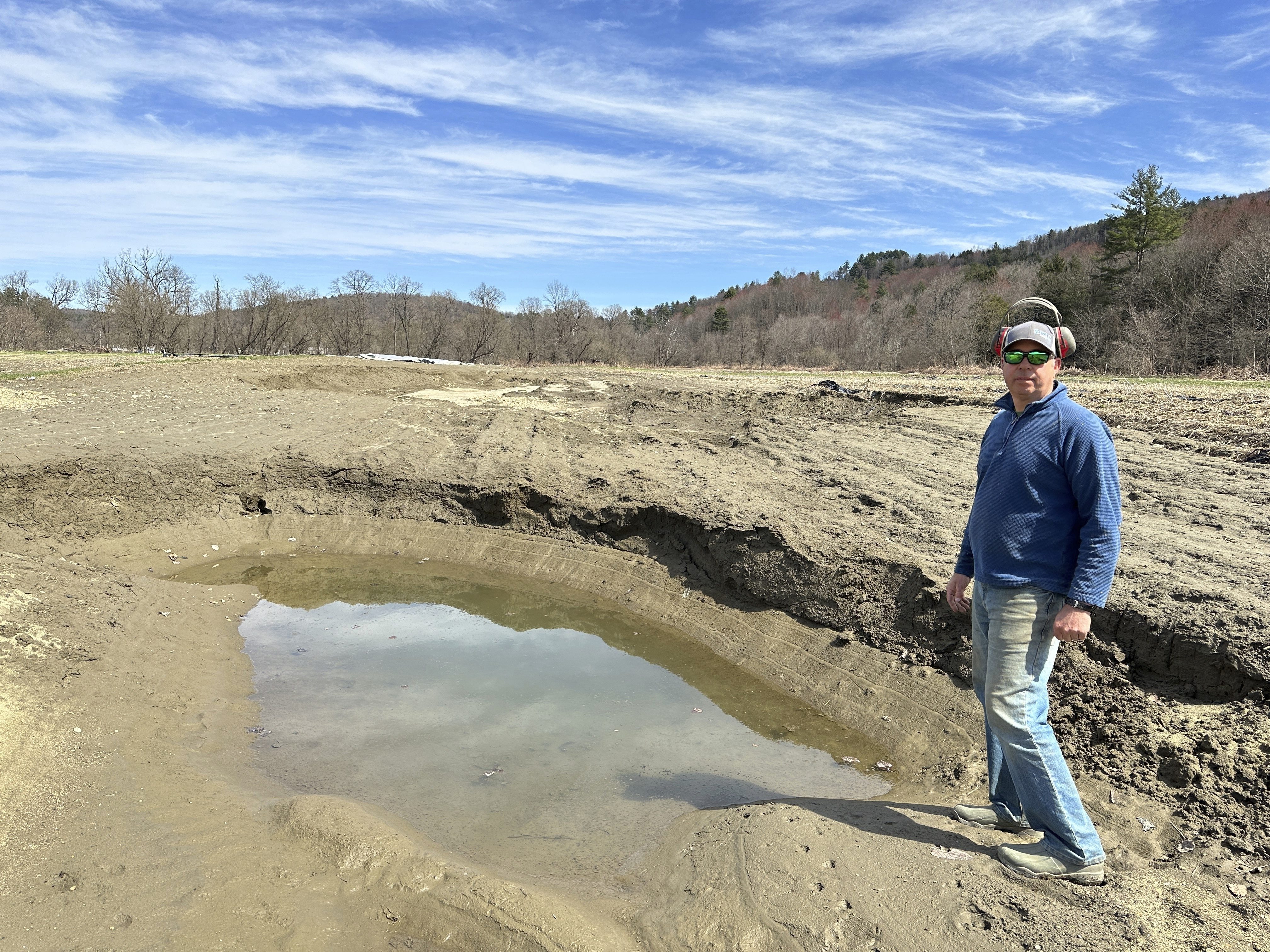Bands of rain, at times heavy, lashed Vermont Thursday, renewing environmental concerns over the health of Lake Champlain.
"It all ends up in our waterways," clean water advocate Eric LaMontagne of Lake Champlain International said of rainfall.
LaMontagne said this rainy summer has been a big factor in a series of sewage dumps into the lake. In more than three dozen cases, the Colchester-based Lake Champlain International said, sewage has been discharged into the lake. That has often been because water treatment facilities have become overwhelmed during downpours, so have no choice but to discharge untreated liquids, the group said.
Such discharges are generally allowed under statute during heavy rain events, LaMontagne noted. He added that his group does not want to criticize or blame treatment plant operators, merely raise public awareness of concerns over how infrastructure is equipped to handle storm water.
To cut the possibility of bacteria, chemicals, and phosphorus entering the water during large storm events, LaMontagne said he hopes Vermonters will focus on water management issues, ranging from making significant upgrades to sewer infrastructure to simple steps like directing downspouts toward lawns instead of toward stressed storm drains.
"The weather's going to do what the weather's going to do," LaMontagne said. "What we need to do as a community is make sure that, as we develop and change the landscape, we're also incorporating these elements that will protect from these larger storms and allow us to handle these larger storms."
At the offices of the Lake Champlain Committee in Burlington, staff scientist Mike Winslow tracks the growth of blue-green algae. He said very hot, still conditions this week have fed the growth of the micro-organisms, which sometimes produce harmful toxins.
Vermont
The latest news from around the state
So an expected temperature change following Thursday's rain, along with wind and churning water, may break apart blooms that have formed in the lake over the past couple of days, Winslow said.
"I'm hopeful," he added. "It's no guarantee that things will change. There's also nutrients being washed in with the rain, but it's the one thing that has the most hope of lessening the impacts of the blooms."
The Vermont Department of Health maintains a blue-green algae "tracker" that may help beach-goers or others stay informed about the health of the lake. A link to that tracker, and to other information on blue-green algae is available at this site.



